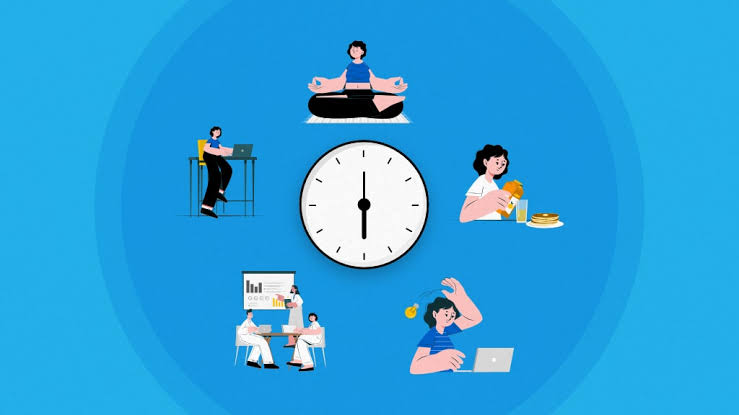For busy professionals and goal-oriented individuals, productivity starts long before the workday officially begins. The way you spend your morning can set the tone for the entire day. Simple, intentional routines can dramatically boost focus, energy, and performance. Rather than chasing elaborate rituals, the key lies in consistency and alignment with personal priorities. A well-crafted morning routine doesn’t just help you get more done—it helps you feel more in control, energized, and mentally sharp.
Why Morning Routines Matter
Morning routines provide structure, reduce decision fatigue, and help shift your mindset from rest to productivity. When the day begins with intentional actions, you’re more likely to stay proactive rather than reactive.
Benefits of a structured morning routine include:
- Enhanced mental clarity and reduced stress
- Better time management throughout the day
- Increased self-discipline and motivation
- A stronger sense of purpose and control
- Improved energy levels and physical readiness
Start the Night Before
An effective morning begins the night before. Sleep, preparation, and planning reduce morning anxiety and increase readiness.
Key actions to take the night before:
- Set out clothes and pack your bag or work tools
- Write down your top 3 priorities for the next day
- Disconnect from screens at least 30 minutes before sleep
- Aim for 7 to 8 hours of quality rest
- Keep your alarm clock out of arm’s reach to avoid snoozing
By handling small decisions in advance, you create a smoother transition into the day and free up mental space for higher-value thinking.
Wake Up with Purpose
Waking up early isn’t just about being awake—it’s about being alert and ready to take charge. A purposeful wake-up allows you to start the day ahead of distractions and demands.
Simple tips to start strong:
- Wake up at the same time every day, including weekends
- Open the curtains or step outside for natural light
- Drink a glass of water to hydrate your body
- Avoid checking your phone immediately after waking
- Use a few minutes to stretch or do light movement
These small actions create a gentle, energizing start that reduces morning sluggishness.
Movement and Physical Activation
Physical activity in the morning boosts blood flow, increases oxygen levels, and releases endorphins. Even light movement can elevate your mood and cognitive function.
Options for morning movement include:
- A brisk 10-15 minute walk outdoors
- Light yoga or stretching exercises
- A quick bodyweight workout (push-ups, squats, lunges)
- Breathing exercises to energize and center the mind
You don’t need an intense gym session—what matters is stimulating your body and releasing physical tension.
Mental Clarity Through Reflection
Starting the day with a calm and focused mind prepares you for clear decision-making. A short period of quiet reflection helps tune your focus and emotional state.
Morning mental clarity tools can include:
- 5 minutes of journaling or gratitude writing
- Mindful breathing or a short meditation
- Reading a motivational quote, passage, or spiritual text
- Reviewing your goals or affirmations
These habits provide internal grounding and help train your brain to approach challenges with calm and focus.
Fuel Your Body Wisely
Skipping breakfast or grabbing processed food can sabotage your energy levels. A light but nutritious breakfast sets the metabolic tone for the day and supports cognitive alertness.
Smart breakfast ideas:
- Oatmeal with nuts and fruit
- Greek yogurt and berries
- Eggs with whole grain toast
- A protein smoothie with spinach and banana
Pairing hydration with nutrition ensures your body and brain have the fuel they need to perform well from the start.
Review and Visualize Your Day
Taking 5-10 minutes to review your schedule helps clarify what’s ahead and mentally prepares you for tasks and meetings. Visualization is a powerful technique used by top performers to mentally rehearse success.
Daily review practices might include:
- Reviewing your calendar or planner
- Reading over your top 3 priorities
- Visualizing completing tasks calmly and successfully
- Mentally rehearsing difficult conversations or presentations
This moment of focus strengthens your commitment and prepares your brain for action.
Limit Digital Distractions Early On
Morning is the most vulnerable time for mental overload. Starting the day with emails, social media, or news can hijack your mood and attention.
To avoid digital overwhelm:
- Delay checking emails until after your first priority task
- Avoid social media apps for the first hour of the day
- Turn off non-urgent notifications during your routine
- Replace screen time with analog activities (reading, writing, stretching)
Protecting your attention in the morning helps maintain focus throughout the rest of the day.
Keep It Simple and Repeatable
Complex routines often fail. The most effective routines are short, personalized, and repeatable. Consistency is what creates long-term gains.
Tips for designing your routine:
- Choose 3 to 5 actions that support your personal goals
- Start with small time commitments (e.g., 10–30 minutes total)
- Be flexible—some days may require adjustments
- Track your mood or performance to evaluate impact
- Reflect monthly and make tweaks as needed
Even with a busy schedule, a 30-minute intentional start can transform your productivity and mood.
Sample 30-Minute Morning Routine
Here’s an example of a simple yet powerful routine:
- 6:00 AM: Wake up, hydrate, and open the blinds
- 6:05 AM: Light stretch or 10-minute walk
- 6:15 AM: Journal or reflect on goals and gratitude
- 6:25 AM: Eat a light, healthy breakfast
- 6:35 AM: Review calendar and top 3 priorities
This minimalist routine requires no expensive tools, apps, or equipment—just consistency and intention.
Conclusion
Boosting productivity doesn’t require radical changes or waking up at 4 a.m. It requires consistency in doing a few simple things every morning to prepare your body, mind, and schedule for success. By focusing on hydration, movement, reflection, nutrition, and prioritization, you can transform your mornings into a launchpad for better focus, energy, and performance—every single day.



